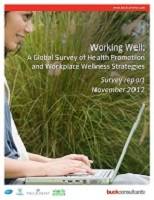March 5, 2013
Challenge for Ecobuild is reducing greenwash and white noise
 Today is the first day of Ecobuild, which claims to be the world’s largest exhibition dedicated to sustainable construction and fit-out. Some 1,500 organisations are taking part in the event in East London which last year attracted 58,000 visitors from around the world. While undoubtedly successful, influential, with great intellectual content and a showcase for some truly innovative and effective products, the approach of Ecobuild invariably begs the question: in a world in which every supplier claims to be environmentally friendly, how are their customers expected to make the right choices?
Today is the first day of Ecobuild, which claims to be the world’s largest exhibition dedicated to sustainable construction and fit-out. Some 1,500 organisations are taking part in the event in East London which last year attracted 58,000 visitors from around the world. While undoubtedly successful, influential, with great intellectual content and a showcase for some truly innovative and effective products, the approach of Ecobuild invariably begs the question: in a world in which every supplier claims to be environmentally friendly, how are their customers expected to make the right choices?























March 6, 2013
Buying green products should involve a closer look at the supply chain
by Mark Eltringham • Comment, Environment, Facilities management, Workplace design
More →